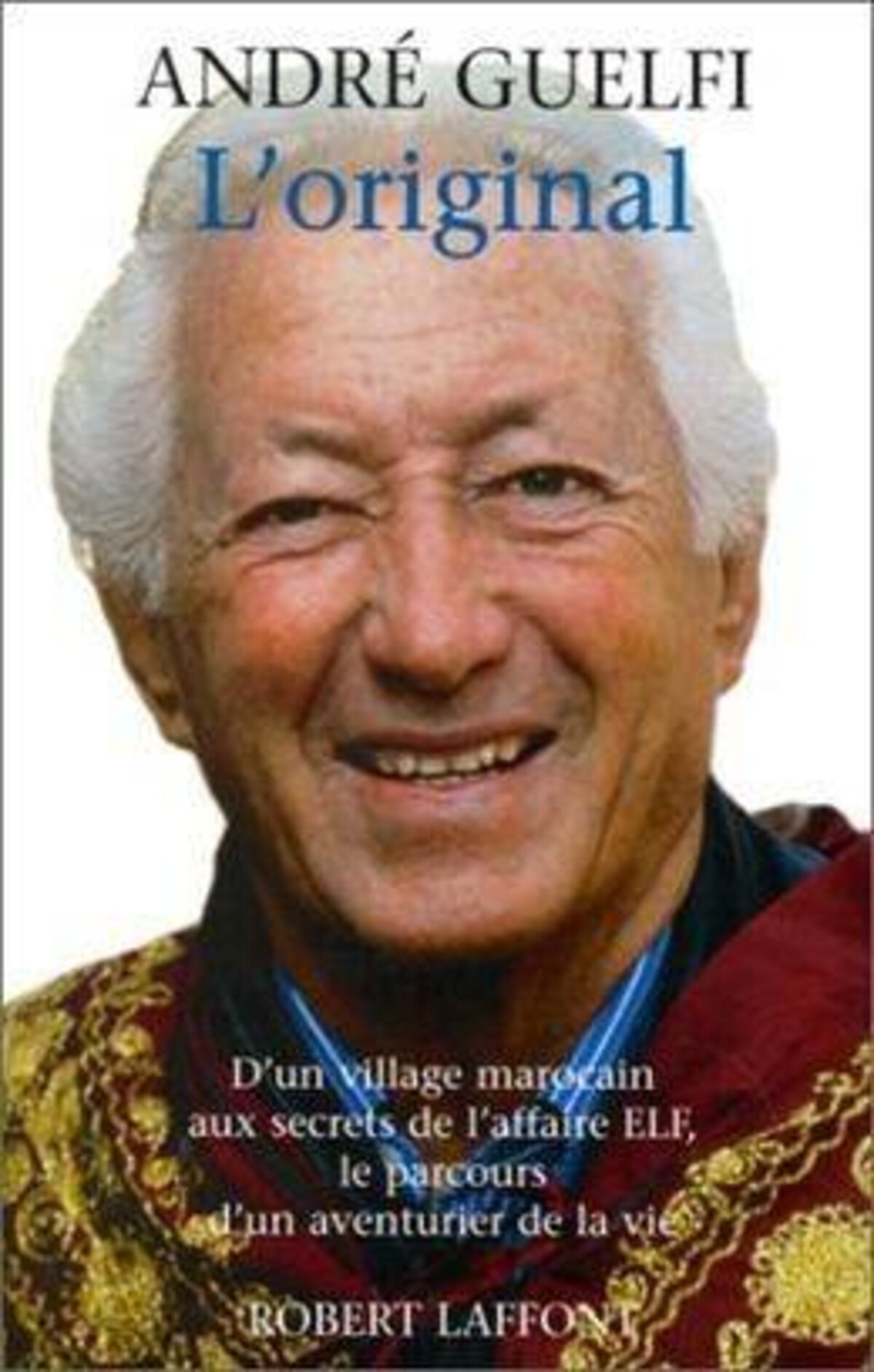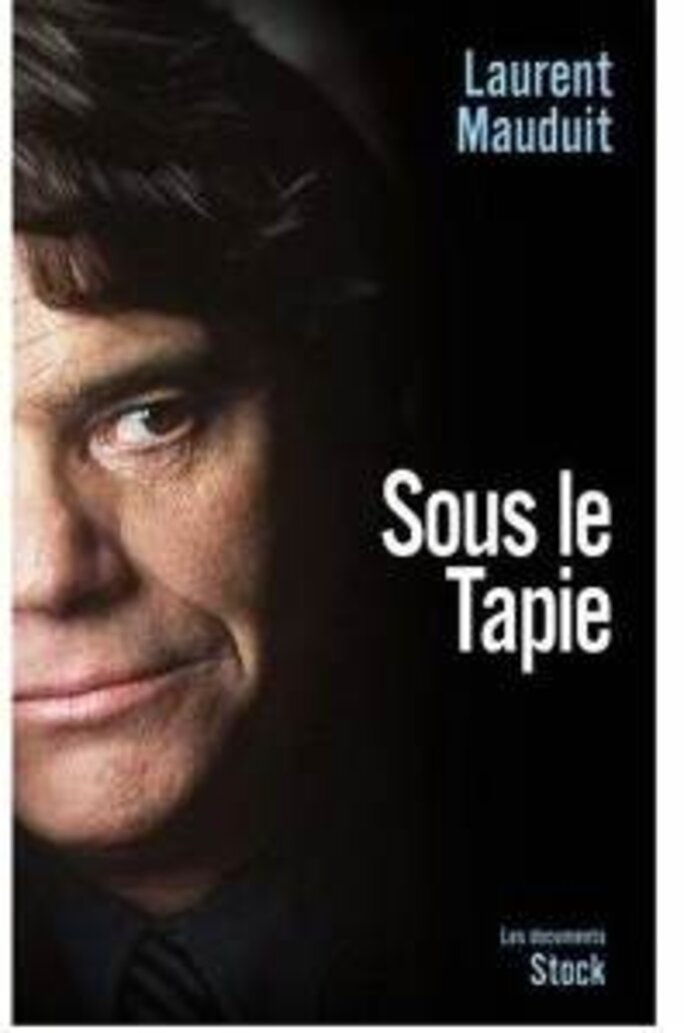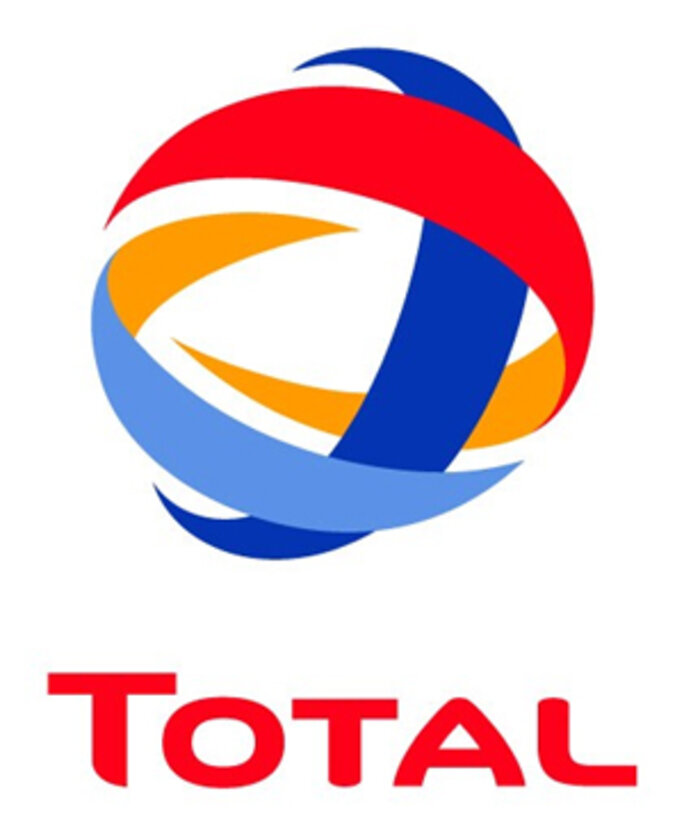French oil giant Total is facing a claim for 170 billion dollars (131 billion euros) over a contract negotiated 20 years ago in Russia by a defunct subsidiary and which was never brought into effect.
A Paris court decision has left Total, one of the world's six biggest oil companies and whose stock is the largest of the Paris CAC 40 index, ensnared in an international arbitration procedure that threatens its very stability. All of its attempts to stop the matter from spiralling out of its control have so far failed.
No corporate entity has ever before faced a damages claim for such a huge amount. Not even class actions in the United States, the bane of large corporations, have reached this level of compensation demand. As a measure of comparison, claims against British oil company BP over last year's giant oil spill in the Gulf of Mexico are likely to run to several tens of billions of dollars.
Total had for a long time disregarded what it considered preposterous demands from the Russian regions involved in the claim, and their intermediary, André Guelfi, now aged 91. A one-time Formula One motor racing driver and owner of Le Coq Sportif clothing brand, his early business activity was in a fish canning business in Morocco, earning him the life-long nickname of ‘Dédé the Sardine'1
On January 6th 2011, the Paris Court of Appeal verdict dashed Total's hopes of finding its way out of the international arbitration procedure - one which it had never sought and which saw an arbitrator chosen over its head to represent it.
Although this manoeuvre had drawn reprobation in an earlier legal ruling, Jean-Pierre Mattei, former president of the Paris Commercial Court, was designated in 2009 against the company's wishes as the arbitrator representing Total's former Russian subsidiary. The Court of Appeal overruled a previous judgment by a lower court in Total's favour, arguing it had no jurisdiction on the matter.
The court, presided by Patrick Matet sitting with Judges Guihal and Dallery, decided that: "On matters of international arbitration, a judge in the French system is not given the power to rule on the legality of the arbitration tribunal's composition before the sentence has been read, given that this tribunal, which has been definitively constituted, is not based in France and does not apply French procedural rules. The fact that the French party to the arbitration contests the validity of the arbitrator's contract concluded in its name with one of the members of the tribunal cannot be deemed to derogate from this principle." (Click here to read the jusdgement in full - French only).
Total has made little public comment about the ruling. In a communiqué, it announced: "This is a decision from the Court of Appeal. We are taking it to the Cour de Cassation2 or a judicial review of the ruling in order to pursue our quest to establish our rights." However, the oil giant is now internally on a war footing.
After its takeover of French oil company Elf Aquitaine in 1999, Total thought it had finally closed a door on Elf's controversial past and eradicated all trace of dubious dealings. But 15 years after the events, some protagonists have come back to haunt the oil company, with ‘Dédé la sardine' Guelfi situated at the heart of the affair.
------------------------
1: 'Dédé' is a French abbreviation used in a familiar manner for the name André.
2: The Cour de Cassation is the highest appeal court in France and deals only with the legal and case law aspects of a given case, not the facts of the case.
Bonjour largesse
The case is a complex one. In 1991 Elf, with Loïk Le Floch-Prigent as its chairman, sought after the collapse of the USSR to extend its influence in Russia and the former Soviet republics. Bit its attempts met with little success. Guelfi approached the group to offer his services.

According to his own account, Morocco-born Guelfi made his fortune from a fish canning factory in the North African country. Others say he was helped by his relations with people in the Moroccan royal family's inner circle, and in particular with General Mohamed Oufkir, then right-hand man to King Hassan II.
Guelfi ultimately became a millionaire, with numerous real estate investments as well as Le Coq Sportif sportswear company. He moved to Lausanne, Switzerland, where he became friends with his new neighbour, Juan Antonio Samaranch, president of the International Olympic Committee from 1980 until 2001.
Samaranch gave Guelfi an introduction to Olympic circles, which brought him contacts in that field in every country, and in particular on Russia's highly influential Olympic Committee. Guelfi and Samaranch's association allowed Guelfi to organise the Moscow Olympic Games in 1980, which were boycotted by most Western nations, especially the United States.
In 1990 Samaranch alerted Guelfi to the fact that the newly independent Uzbek government had vast stocks of oil to sell and was seeking business solutions for its crude oil deposits. Guelfi, like certain Elf Aquitaine managers including Alfred Sirven and André Tarallo, was close to the Gaullist RPR1 political party's branch in the Hauts-de-Seine suburban area west of Paris. He caught the Elf chairman's ear and, convinced of the opportunity, Le Floch-Prigent gave the go-ahead.
To avoid a veto, the matter had to go over the heads of the French Foreign Ministry and straight to the French presidency for agreement. That was to be the start of a remarkable story that would become one of the highlights of the Elf trial. It was the celebrated French novelist Françoise Sagan, contacted by an intermediary, who would obtain then-president François Mitterrand's assent.
After his success with the Uzbek dossier, Guelfi was in a strong position to obtain exploration and production rights for Elf in Russia. In 1992, thanks to his contacts on the Russian Olympic Committee and with several oligarchs, Guelfi obtained the necessary permits to prospect in the Russian regions around Saratov and Volgograd. Generous commissions and promises of profit-sharing were granted to all those involved.
At this point Elf set up Elf Neftgaz, a subsidiary for managing extraction on these permits. It was this company that concluded a production sharing contract with a Russian partner, Interneft.
But there were suspensive clauses in the contract: firstly, that studies show an exploitable presence of crude oil; secondly, that Russia and the regional authorities should grant the necessary extraction rights; and finally, that Russian legislation should be amended to allow the deal to be put into practice. An arbitration procedure was envisaged in case of litigation.
But the deal quickly fell by the wayside. There was disagreement in some regions over the contract; the Saratov region in particular was unhappy at Elf's presence and wanted to remain independent. The French firm did not undertake any investments there because the Russian legislation that was to give guarantees for its extraction rights was never amended accordingly. As for the presence of oil, or the extent of the presence, opinions are divided.
According to sources close to Guelfi, the regions in question are overflowing with oil. "André Guelfi held the cards for the former USSR's entire mining reserves in his hands," said one, whose name is withheld. "It's a given that there is oil there." Total, however, says the deposits are too small to interest large oil companies. "Not a single major group has set up there," it argues.
In 1994 the parties formally acknowledged that the necessary conditions were lacking, and the region of Saratov officially recognised in writing that the contract's conditions had not been fulfilled. The matter should therefore have gone no further.
But Guelfi would not let it rest there. It is difficult to ascertain his motives, but he let it be known that he had lost out on a fortune. Under his contract, he should have been paid a fixed sum of five million French francs (about 762,000 euros), plus a share in the value of equipment - but certainly not of the production.
Initially, Philippe Jaffré, who succeeded Le Floch-Prigent as chairman of Elf, refused to pay him anything. But Guelfi is understood to have suggested to Geneviève Gomez, one of Jaffré's closest advisors who was responsible for the company's legal affairs, an arrangement under which Elf would allow him to receive his commission, and in return the company would not run the risk of being accused of misuse of company assets.
When Jaffré found out about this arrangement he angrily demanded that the whole thing be stopped. In the end, a final settlement was reached under which Elf paid Guelfi seven million francs (a little more than one million euros).
-------------------------
1: The RPR (Rassemblement pour la République) was founded by President Jacques Chirac in 1976. It became the UMP (Union pour une Majorité Presidentielle) in 2002 and was reformed as the Union pour un Mouvement Populaire in 2007.
Guelfi supported by Russian ambassador

Once more, Elf thought it was done with Guelfi. But the veteran wheeler-dealer is not one to let go. In prison following the Elf trial, he became friends with French entrepreneur Bernard Tapie - one a former chairman of Le Coq Sportif and the other a former chairman of Adidas. Both wanted to recover the billions they had foregone.
In his book, Sous le Tapie (left), Mediapart's Laurent Mauduit describes how the two signed a contract pledging to share anything they would later recover, on a 50-50 basis. Mediapart has since learnt that Tapie and Guelfi have since fallen out: Tapie did not honour his promise to share the 220 million euros he was awarded from the French Treasury1 with Guelfi, who discreetly approached lawyers to force Tapie to abide by their contract.
As soon as he was released, Guelfi began working to resurrect his dispute with Elf over the Russian contract. "He never accepted going to prison, never admitted he had crossed the line and been sentenced to 18 months in prison," said a source close to Guelfi. "On the contrary, he sees himself as a hero, a servant of France. Since then he has wanted to have his revenge."
Despite his settlement with Elf in 1995, in 1998 he took out a lawsuit against the oil company at the Paris Commercial Court. He also raised the stakes; he was no longer claiming a few dozen million but four billion dollars as compensation for the prejudice suffered not only by him, but also by the Russian Olympic Committee, since he said he had sold half his contract to the committee.
This kind of case usually comes under the jurisdiction not of the Paris Commercial Court but of the commercial court in Nanterre, a suburb of Paris. Even so, Mattei, then president of the Paris court, was prepared to hear it. And even more strangely, the first chamber of the Paris Commercial Court, known as the president's chamber, was designated right from the time the lawsuit was registered, contrary to usual practice.
It is significant that another commercial court judge, Georges Geronimi also sits at the first chamber of the Paris Commercial Court. Geronimi has many connections with Mattei - both are Corsicans and have houses close to each other in Ajaccio.
Geronimi knows Russia very well. A former advisor to right-wing press baron Robert Hersant, Geronimi bought a Russian business magazine, Delovie Lyudi, from Hersant in 1995. He would go on to expand his interests in Russian media via a company called ICC (Investment Consulting Communication). For a long time he also ran a company called DIS, which specialised in advising French companies seeking to set up business in Russia.
As a commercial court judge, he oversaw the sale of struggling French daily France Soir, sold in 2004 despite the opposition from its staff to French businessman Jean-Pierre Brunois. The daily was later taken over, in January 2009, by young Russian billionaire Alexander Pugachev.
During the lengthy Elf trial this civil case was suspended, and would resurface in the autumn of 2007. Geronimi was still sitting as a commercial judge to handle the case.
In November 2007, some unexpected visitors attended the routine procedural hearing to reopen the case under the Paris Commercial Court's jurisdiction. Among a handful of Russians attending was Viktor Chernomyrdin, former chairman of Gazprom and deputy prime minister in charge of energy at the time the Elf contract was signed, and who later became Boris Yeltsin's prime minister. There was also a vice president of the Duma. Total's lawyer, Emmanuel Rosenfeld, realised then that the matter was much more serious than had seemed.
The public prosecutor, alerted by accounts of this unusual hearing, was jolted into action. He contacted the court's president, Christian de Baecque, requesting that the first chamber be composed of five, rather than only three, commercial court judges. At the next session the president of the first chamber, Bernard Prugnat, appeared mesmerised. Despite a written intervention from the Russian ambassador to France, Alexander Orlov, to defend Guelfi's position - also something unheard of in normal procedure - in January 2009 all Guelfi's requests were dismissed. Guelfi appealed the decision. He also raised more and more areas of disagreement, bogging down the procedure.
--------------------------
1: In 2008 Bernard Tapie won a long-running legal battle against state-owned bank Credit Lyonnais for his share of the capital gain when he sold Adidas to a consortium including the bank in 1993.
The manoeuvring behind Total's back
Then, whether because Guelfi felt he was losing in Paris or because other interests came in and took over, on July 28th, 2009, in the middle of the courts' summer recess, Olivier Pardo, one of Tapie's lawyers, petitioned the Nanterre Commercial Court. Pardo was counsel for Interneft, which was supposed to represent the Russian regions.
That day, he requested on their behalf that an ad hoc proxy be designated to represent the interests of Elf Neftgaz - a company that had been closed and struck off the register since 2004 - in an international arbitration procedure. This was no small matter: the Russian side alleged there had been an oil production sharing agreement. It estimated the prejudice it had suffered because the contract had not been implemented by Elf at 170 billion dollars.
There was hardly anyone at the Nanterre Commercial Court that day, only the court's president, Jean-Bertrand Drummen, and a chamber president. The judge's name does not figure on the decision, so it is impossible to know who was in charge of the case. The judges took no time to investigate the case and granted Olivier Pardo's request on the very same day.
An investigation would have ascertained that the Interneft making the claim for compensation was not the same company as that which grouped the interests of the Russian regions and had a contract with Elf in 1992. The new firm is the equivalent of a limited company and is owned by another firm, Alltrend, which has as its corporate representative one Frida Brande, Guelfi's Russian interpreter.
Just how this company could have grounds to claim it suffered a prejudice of 170 billion dollars appears to interest no-one. Nor does anybody show surprise that the Russian regions, which were silent for 15 years, should suddenly make a claim against a company that was closed and struck off the register, without the slightest objection, five years earlier.
So on July 28th 2009, Charles-Henri Carboni, an administrative receiver, was designated by the court as an ad hoc proxy representing Elf Neftgaz. He sought to deal with the case rapidly; on August 6th he designated an arbitrator to represent Elf Neftgaz without conducting the negotiations usually required of an arbitration procedure.
Which was how Mattei was appointed. Since leaving the Paris Commercial Court he had taken on the role of arbitrator and advisor. Carboni also appointed Maurice Lantourne, who had been Tapie's lawyer for a long while, as the former Elf unit's lawyer.

All of this was done behind Total's back. Alerted on August 12th, 2009, the oil company immediately counter-attacked. It contested the entire procedure under which the ad hoc proxy was designated for its former subsidiary, on the basis that the judge did not append his name to the decision. Carboni took fright and gave up his mandate. Lantourne insists he was never designated as lawyer in the case and has no involvement in it any more. Then, on September 18th 2009, the Nanterre Commercial Court overturned every aspect of the decision.
However, Mattei had clung on to his mandate. He and Laï Kamara, whom he knew from the Pallas Stern case1were arbitrators for the Russian parties. Together they appointed a third arbitrator, an Austrian lawyer named Andreas Reiner. On September 4th 2009, the arbitration tribunal had been set up, and was to all intents and purposes unassailable under international regulations.
Total contested the way Mattei was designated to represent its subsidiary, without any consultation with the company itself, and the Tribunal de Grande Instance (High Court), which ruled in its favour. But Mattei appealed, and Reiner personally attended the hearing on November 30th 2010 to lend support to Mattei, who was not present.
Even though the public prosecutor requested that Mattei's mandate be declared null and void, the Appeals Court ruled otherwise, and the trap closed on Total.
-------------------------
1: The Banque Pallas Stern went bankrupt in 1995.
English version: Sue Landau


